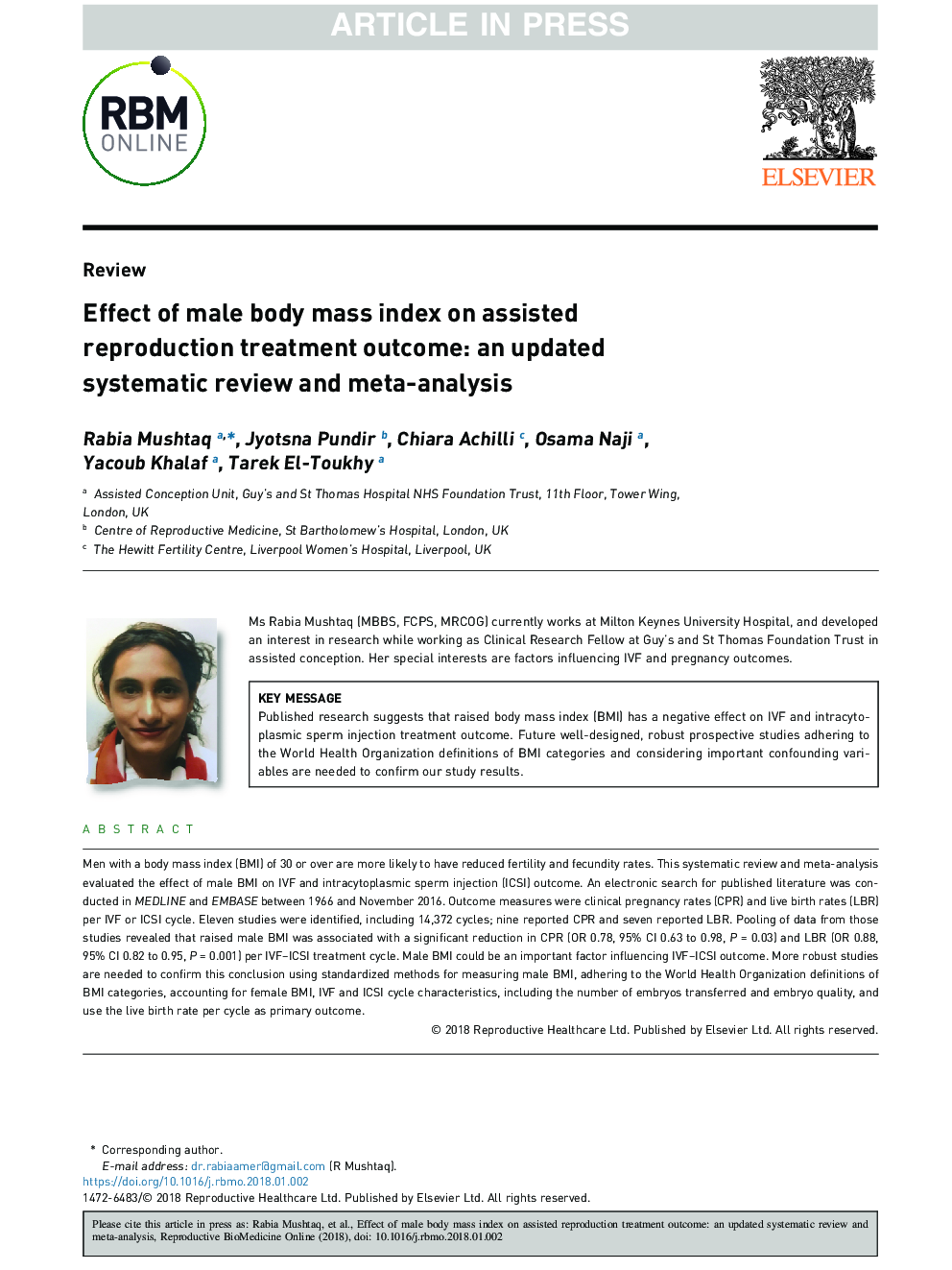| کد مقاله | کد نشریه | سال انتشار | مقاله انگلیسی | نسخه تمام متن |
|---|---|---|---|---|
| 8783881 | 1600901 | 2018 | 13 صفحه PDF | دانلود رایگان |
عنوان انگلیسی مقاله ISI
Effect of male body mass index on assisted reproduction treatment outcome: an updated systematic review and meta-analysis
ترجمه فارسی عنوان
تأثیر شاخص توده بدن مرد بر نتایج درمان تکثیر شده کمک کننده: بررسی منظم و متا آنالیز
دانلود مقاله + سفارش ترجمه
دانلود مقاله ISI انگلیسی
رایگان برای ایرانیان
موضوعات مرتبط
علوم پزشکی و سلامت
پزشکی و دندانپزشکی
زنان، زایمان و بهداشت زنان
چکیده انگلیسی
Men with a body mass index (BMI) of 30 or over are more likely to have reduced fertility and fecundity rates. This systematic review and meta-analysis evaluated the effect of male BMI on IVF and intracytoplasmic sperm injection (ICSI) outcome. An electronic search for published literature was conducted in MEDLINE and EMBASE between 1966 and November 2016. Outcome measures were clinical pregnancy rates (CPR) and live birth rates (LBR) per IVF or ICSI cycle. Eleven studies were identified, including 14,372 cycles; nine reported CPR and seven reported LBR. Pooling of data from those studies revealed that raised male BMI was associated with a significant reduction in CPR (OR 0.78, 95% CI 0.63 to 0.98, P = 0.03) and LBR (OR 0.88, 95% CI 0.82 to 0.95, P = 0.001) per IVF-ICSI treatment cycle. Male BMI could be an important factor influencing IVF-ICSI outcome. More robust studies are needed to confirm this conclusion using standardized methods for measuring male BMI, adhering to the World Health Organization definitions of BMI categories, accounting for female BMI, IVF and ICSI cycle characteristics, including the number of embryos transferred and embryo quality, and use the live birth rate per cycle as primary outcome.
ناشر
Database: Elsevier - ScienceDirect (ساینس دایرکت)
Journal: Reproductive BioMedicine Online - Volume 36, Issue 4, April 2018, Pages 459-471
Journal: Reproductive BioMedicine Online - Volume 36, Issue 4, April 2018, Pages 459-471
نویسندگان
Rabia Mushtaq, Jyotsna Pundir, Chiara Achilli, Osama Naji, Yacoub Khalaf, Tarek El-Toukhy,
